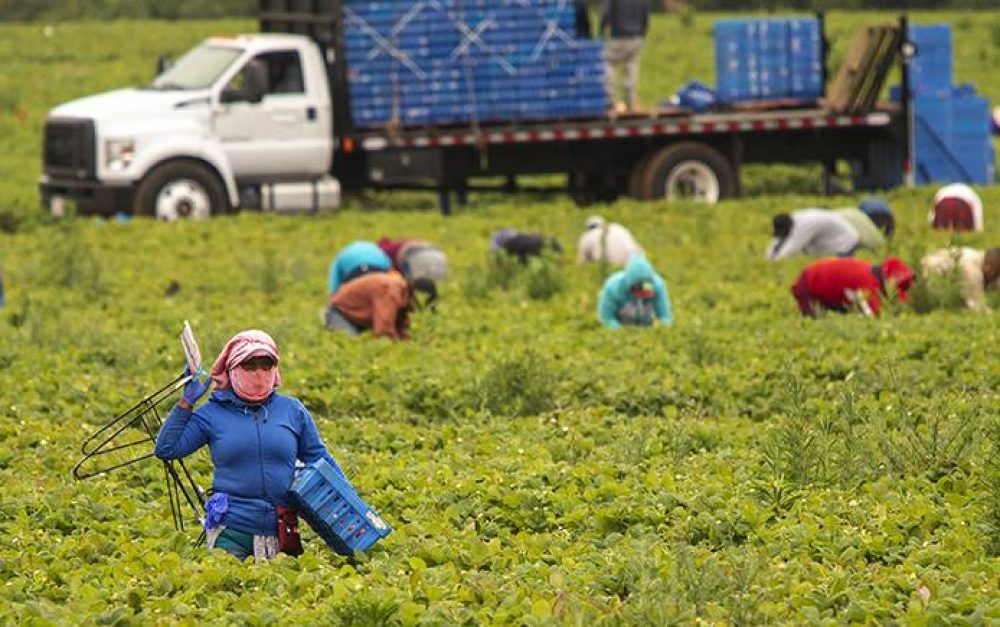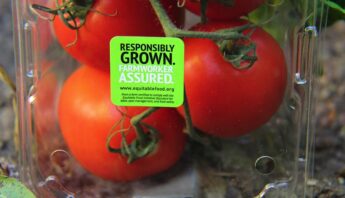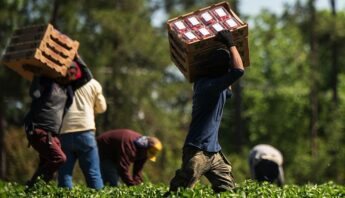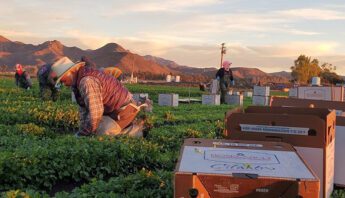This week, PAN once again joins farmworkers and farmworker advocates around the country in celebrating those who plant, cultivate, and harvest our food, and amplifying the continued work toward eliminating a long legacy of injustice.
This blog was originally published in March 2021, during National Farmworker Awareness Week.
This week, PAN once again joins farmworkers and farmworker advocates around the country in celebrating those who plant, cultivate, and harvest our food, and amplifying the continued work toward eliminating a long legacy of injustice. It’s National Farmworker Awareness Week. As the past year has shone a spotlight on essential workers — farmworkers included — amidst the COVID-19 pandemic, this week of recognition feels different in a lot of ways, yet remains the same in others.
On top of everything else. . . a pandemic
COVID-19 has been difficult for everyone, but especially for essential workers. And farmworkers have been some of the hardest hit, having to cope with the pandemic on top of the systemic injustices already embedded in our food and farming system. Farmworkers routinely deal with hazardous working conditions — limited personal protective equipment when applying pesticides, hard labor in the hot sun with limited access to shade and drinking water, and crowded living quarters.
The pandemic has added another layer of hardship. Findings of a COVID-19 Farmworker Study (COFS) indicate that half of all participating farmworkers reported barriers to accessing healthcare even if they were ill, including lack of insurance, high costs and lack of sick leave provided by the employer. Only a small pool of employers were found to provide masks and face coverings. The study also found farmworkers being systematically excluded from critical safety-net programs for essential workers, and facing challenges such as a lack of childcare, food insecurity, and lack of access to financial assistance programs in the midst of this global crisis.
Building trust is critical
Farmworkers should be among the most prioritized groups to receive the COVID-19 vaccine now that it’s available — a significant step toward seeing an end to the pandemic. However, despite Centers for Disease Control guidance that vaccines should be prioritized for farmworkers, several states with large farmworker populations have not followed this recommendation. In California, farmworkers were eligible to receive the vaccine in February, but the rollout has been haphazard. Some larger farms have hosted onsite vaccination clinics to ensure their workers are able to be immunized, but many are left trying to navigate a difficult system on their own.
Building trust with the farmworker community is critical for ensuring these populations have access to the vaccine. Polling of Latinx farmworkers has shown that a lot of workers are hesitant to get the vaccine due to a general — and understandable — mistrust of the healthcare system. There is often a lack of access to reliable information in their language, and fears around immigration status, loss of employment, and resulting financial devastation have kept workers away from vaccination and testing sites.
Solutions rooted in communities
This haphazard rollout of the vaccine to the folks who have kept our food system running as so much has been in flux over the past year is just one example of how so much more needs to be done alongside farmworker communities to combat the injustices they face on the job. PAN’s commitment to core constituencies recognizes that accountability to those most harmed by chemical-intensive farming should be woven into everything we do. Here’s what we’ve been working on lately with farmworker partners to support food and farming policies and practices that are healthy, regenerative and just:
EFI & COVID resources
As a founding member of the Board of the Equitable Food Initiative (EFI), we are proud to report that 47 large EFI-certified produce operations are actively engaging workers in on-farm leadership teams that have developed important COVID-19 resources to protect workers and their families. The teams then ensure that these resources and necessary protective actions reach the entire EFI workforce, now totalling over 52,000 workers. Additionally, a California-based PAN partner, the Binational Center for the Development of Oaxacan Indigenous Communities (CBDIO), produced COVID-19 materials in multiple Indigenous languages that we passed on to EFI. EFI’s Community Engagement Officer, Rebecca Castrejon, reported that these materials provided “so much information about the COVID-19 vaccines in popular Native languages such as Zapoteco, Mixteco, Trique, and Tlapanec.”
Federal worker protection
At the federal policy level, we continue our regular collaboration with a national network of farmworker and farmworker advocate organizations where, since 2000, we have worked to ensure that the federal Worker Protection Standard (WPS), for example, is enforced, and as strong as it can be. In recent months, we have worked tirelessly with national partners to block the previous administration’s attempt to roll back a key provision of the WPS — enforcement of the Application Exclusion Zone. So far, we’ve been successful. With partners, PAN has urged EPA’s Office of Pesticide Programs to regularly report on our priorities regarding farmworker protections, including pesticide use labeling in Spanish and other languages. We also continue our decades-long engagement with the National Sustainable Agriculture Coalition (NSAC), which works diligently to ensure that farmworker concerns and racial equity are adequately centered in the few policies included in the farm bill that currently address farmworkers’ health and safety in the fields.
Immigration reform
Federal immigration reform has already come up in several ways within the Biden administration with the Dreamers Act (HR 6) and the Farm Workforce Modernization Act (HR 1603) passing the House on March 18. PAN believes that all undocumented agricultural workers should have a path to permanent residency and citizenship. We will continue to follow the analysis and advocacy efforts in the farmworker justice movement and will continue to play a liaison role between our many national and state-based farmworker partner organizations and the sustainable agriculture movement.
While we take this week at the end of March each year — organized and coordinated by Student Action with Farmworkers — to specifically recognize farmworkers, our collective work to improve the lives of the hardworking folks who we depend on for the food we consume remains a year-round priority.







